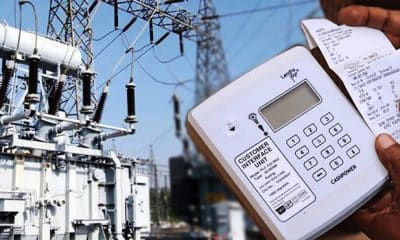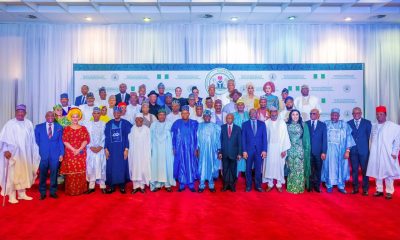Nigeria News
Major Highlights Of Minister Of Power’s Press Briefing In Abuja

The Minister of Power, Adebayo Adelabu, on Friday, gave necessary insight into his ministry’s activities and the plans of the President Bola Ahmed Tinubu-led administration to improve power supply in the country.
Adelabu also urged Nigerians to be patient with him, saying that the positive yields of the reforms in the power sector will be visible and more importantly sustainable.
He made this known while briefing journalists in Abuja on Friday about the recent increase in electricity tariff by the Nigerian Electricity Regulatory Commission (NERC).
Below are the major highlights of the press conference.
– Before the tariff changed, the government subsidized 67% of electricity costs, rising even higher for generation alone.
– The estimated subsidy cost for 2024, before tariff adjustment, was approximately 2.9 trillion Naira.
– After the adjustment, the estimated subsidy cost for 2024 reduced to around 1.4 trillion Naira. This is a huge drop of over 50% in subsidies alone.
– The tariff increase came with a reduction in Band A feeders, with only 481 remaining out of over 1,000.
– Nigeria has around 12 million electricity customers.
– Only 15% of the total customers who are categorized as Band A customers accounts will no longer receive subsidies.
– Only slightly over 5 million customers are currently metered, leaving a gap of over 6 million.
– Subsidzed pricing will continue temporarily, with a plan to move towards cost-reflective pricing in three years.
– The tariff change is aimed at testing the concept of full payment for 20-24 hours of daily supply.
– The pricing adjustment aims to address liquidity issues and make investments in the sector more feasible.
– There are significant infrastructure challenges in the power sector, including obsolete equipment and vandalism.
– DisCos failing to provide 20 hours of supply to Band A consumers will face sanctions.
– DisCos has an incentive to migrate other bands to Band A to charge higher tariffs.
– Energy consumption management is crucial despite the poorly received ‘freezer’ example.
– Ongoing efforts include regulatory decentralization, renewable energy investments, and infrastructure improvements.








